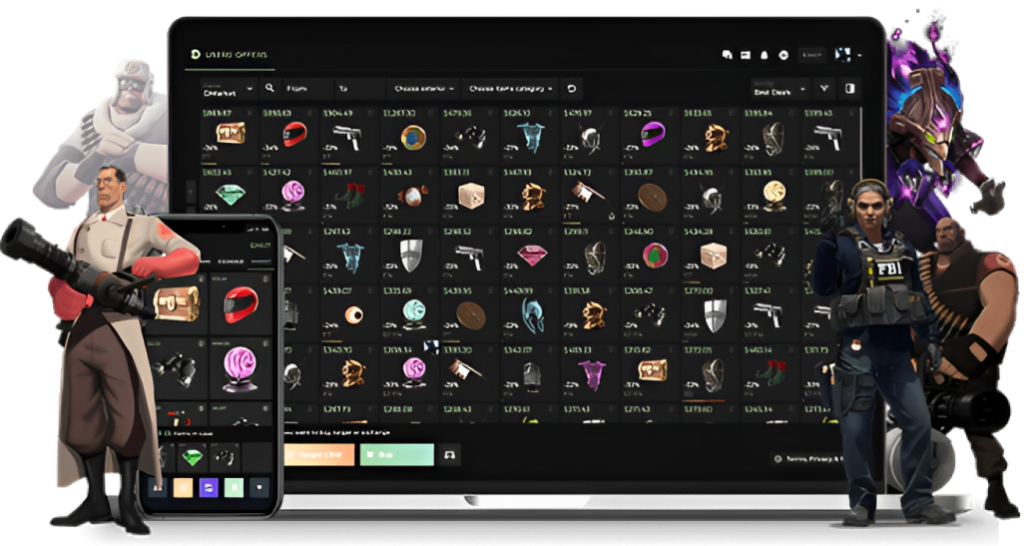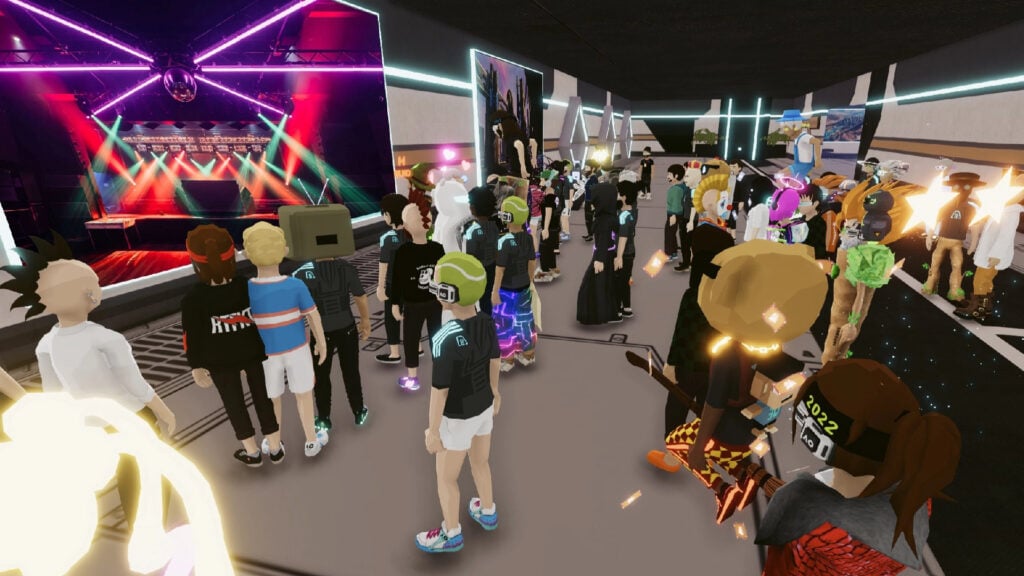views
The idea of a Metaverse has been around for decades. It has inspired countless books, movies, and TV shows, and has captured the imaginations of people all over the world. However, until recently, the idea of a true Metaverse has remained largely a fantasy (Blockchain Gaming is Redefining the Metaverse).
But the rise of blockchain technology and gaming is changing this. By enabling the ownership and trading of digital assets in a way that was not possible before, blockchain gaming is unlocking the keys to the Metaverse castle.
In this blog, we’ll explore the intersection of blockchain and gaming and how it is making the dream of a true Metaverse a reality. We’ll also look at how blockchain gaming is converting the Metaverse from hype to reality, and what the future holds for this exciting and rapidly evolving space.
The Metaverse and blockchain gaming share natural affinities that make them a perfect match. Both concepts are based on creating a digital world where people can interact with each other in a way that feels real. They also allow for the ownership and trading of assets, providing a sense of control and value to the player.
In traditional gaming, players can own in-game items like weapons, armor, and other virtual goods. However, these assets are usually locked into the game and cannot be taken out or traded outside of the game's ecosystem. This creates a closed and limited experience that does not fully take advantage of the potential of digital assets.
Blockchain gaming changes this by allowing players to own and trade their in-game assets as NFTs on a blockchain. NFTs are unique digital assets that can be transferred, bought, and sold like physical assets. This means that players have full ownership of their digital assets, and they can profit from them if they choose to sell them.

This ownership and control of assets is a fundamental aspect of blockchain gaming that fosters a player-first ecosystem. Players have more control over their digital possessions, and this incentivizes them to invest more time and money into the game. This, in turn, leads to a more engaged and loyal player base that benefits the game and the Metaverse.
Moreover, blockchain technology provides a transparent and secure way of tracking and verifying ownership of digital assets. This eliminates the need for middlemen and centralized authorities, reducing the risk of fraud and manipulation. This creates a fair and open playing field that benefits players, developers, and the Metaverse as a whole.
Gamers have always been at the forefront of adopting new technology. From the earliest days of personal computing to the rise of the internet and social media. Gamers have been quick to embrace new technology and incorporate it into their gaming experiences.
This trend continues with blockchain technology, as gamers are among the first to see the potential of blockchain for gaming. The ability to own and trade in-game assets as NFTs on a blockchain provides a new level of ownership and control over digital possessions that were previously impossible.
Gamers are also attracted to the potential financial incentives of blockchain gaming. By owning NFTs that have real-world value, gamers can potentially profit from their in-game investments. This creates a new level of engagement and loyalty to games that offer blockchain-based asset ownership.
The early adoption of blockchain gaming by gamers is an important step toward the creation of a true Metaverse. As the Metaverse will rely on the ownership and trading of digital assets, the fact that gamers are already embracing blockchain-based asset ownership is a promising sign for the future of the Metaverse.
It’s important to note that the early adoption of new technology by gamers is not just a matter of curiosity or novelty. Gamers are tech-savvy and discerning audience that demands high-quality experiences from their games. The fact that they are embracing blockchain gaming is a testament to the potential of the technology to enhance and improve the gaming experience.
Gaming in the Metaverse has the potential to be a revolutionary user experience in a variety of ways. One of the most exciting aspects of the Metaverse is the possibility of creating a shared virtual space where players can interact with each other. This could lead to a new era of social gaming, where players are not just playing against each other but interacting in a shared world.
In the Metaverse, players could own and trade assets as NFTs, allowing for a more immersive and personalized gaming experience. For example, imagine owning a virtual house in the Metaverse that you can customize and decorate to your liking, and then inviting your friends over for a virtual party. This level of customization and personalization would create a deeper sense of ownership and connection to the virtual world.

In addition, the Metaverse could break down geographical barriers. And enable players from all over the world to come together in a shared virtual space. This would create a more diverse and global gaming community. Where players can learn from and interact with people from different cultures and backgrounds.
Furthermore, the Metaverse could provide opportunities for new forms of gameplay that are not possible in traditional games. For example, players could engage in more complex and immersive role-playing games or participate in collaborative puzzle-solving challenges.
This indicates that gaming in the Metaverse has the potential to be a revolutionary user experience. This can revolutionize the way we interact with each other. By creating a shared virtual space where players can own and trade assets, interact with each other, and participate in new forms of gameplay, the Metaverse could usher in a new era of social gaming and personalized digital experiences.
The concept of the metaverse has been the subject of hype for years, with many envisioning a world where people can interact with each other in a virtual space. However, until recently, this concept has remained largely theoretical, with few practical applications.
This is where blockchain gaming comes in. By allowing players to truly own their in-game assets, blockchain technology can make the metaverse more tangible and attractive to players. This is because ownership is a fundamental aspect of human psychology. And is a key driver of motivation and satisfaction.
As blockchain gaming becomes more mainstream, more gamers will likely embrace this technology, which will further drive the growth of the metaverse. This growth will not only be limited to gaming. But, it will also extend to other areas, such as virtual real estate and virtual marketplaces.
However, it is important to note that the success of the metaverse and blockchain gaming is not guaranteed. There are still many technological, regulatory, and social hurdles that need to be overcome. Additionally, there is a risk of overhyping the concept, which could lead to disillusionment among players.
Blockchain gaming is a crucial piece of the puzzle for the development of the metaverse. Its ability to foster a player-first ecosystem through in-game asset ownership, coupled with the early-adopter tendencies of gamers. And the potential for a revolutionary user experience, making it a key driver of the metaverse's growth.
By converting the metaverse from hype to reality, blockchain gaming can help create a new paradigm for the gaming industry. Where players have more control and ownership over their experiences. As blockchain technology and the metaverse continue to evolve, it is exciting to imagine the limitless possibilities that could be unlocked by this intersection of innovation.
Ultimately, the future of gaming and virtual worlds will be shaped by the pioneers who take advantage of this new era of possibilities, and it's up to all of us to embrace and shape this exciting new frontier.
To know more about how Blockchain Gaming is Redefining the Metaverse, go check out SunCrypto Academy.
Your email address will not be published. Required fields are marked *
Name *
Email *
Website
Comment *
Save my name, email, and website in this browser for the next time I comment.











